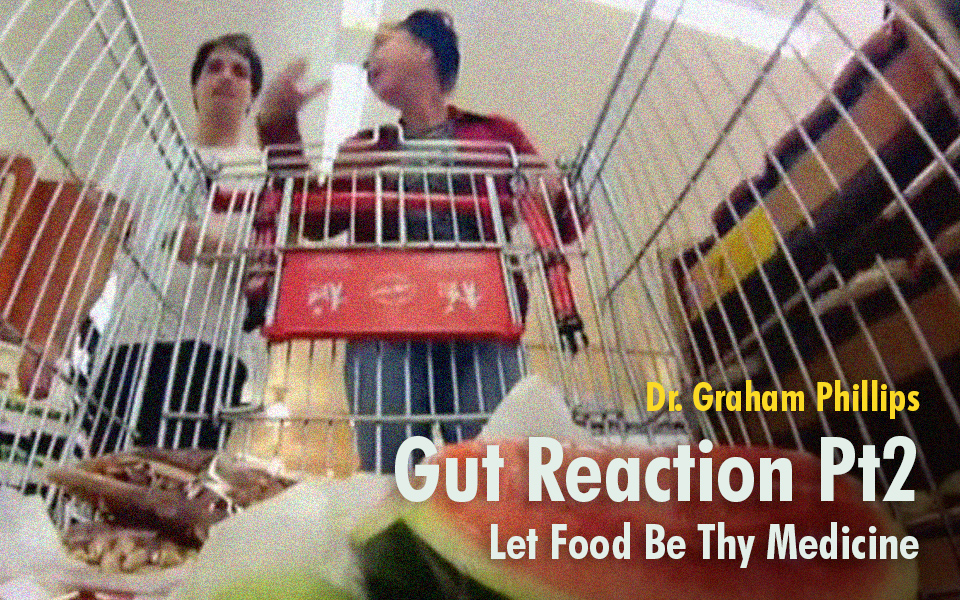Gut Reaction: Let Food Be Thy Medicine
Dr. Graham Phillips explores the latest research linking diet, fiber, vinegar with inflammation, IBS, asthma, allergies, emphysema, multiple sclerosis, autism, and other diseases. He also delves into experimental fecal implant research.
Video Excerpts
Professor Charles Mackay
I think this is one of the biggest developments in medical research. I really think we’re encountering a revolution that maybe we can prevent diseases by simply changing our diet.
NARRATION
Last time on Catalyst, we learned about this paradigm-changing new research.
Dr Graham Phillips
The bottom line is the modern Western diet could be making us very sick, contributing to heart disease, diabetes, asthma, emphysema, multiple sclerosis, even autism, and the list goes on.
NARRATION
The reason for the revelation that a good diet is even more important than we thought is the discovery of the many trillions of new contributors to our health – the tiny good bacteria living in our guts.
 Professor Stephen Simpson
Professor Stephen Simpson
An average person in the West, man or woman, is consuming less than 20g a day of dietary fibre. And to put that into an evolutionary perspective, six-month- to one-year-old Hadza kids are eating 50g to 200g of fibre a day, every day, and they do this throughout life.
NARRATION
Now, there are no proper clinical trials yet proving that vinegar can treat asthma in people, but there are results for mice. After showing she could reduce asthma in these animals by simply feeding them high-fibre food, Alison tried something else – she fed them acetate instead.
Dr Alison Thorburn
In fact, when we give acetate directly in the drinking water to the mice, that also suppressed their asthma.
NARRATION
The leading cause of emphysema in Australia is smoking. And remarkably, this activity, in mice at least, can push the gut microbiome out of balance.
Professor Phil Hansbro
So we think it not just affects the lung but there’s systemic effects, and so that it affects the microbiome in the gut. We can show the changes in the microbiome that occur with cigarette smoke exposure and then we can also show which bacteria are altered, so which ones increase and which ones decrease.
For more information and to view the first part of this video visit Dr Graham Phillips website and the ABC Science YouTube Channel.
To join The Human Microbiome Project research study visit the Human Food Project website.
Dr Graham Phillips
With 20 years experience as a journalist and commentator, Graham is one of the most accomplished science communicators in Australia. Prior to joining Catalyst, Graham was a reporter on ABC TV’s science and technology programs: Quantum and Hot Chips.
Graham has a PhD in astrophysics and has lectured and researched at various universities as well as the Commonwealth Scientific and Industrial Research Organisation (CSIRO). He has penned columns for almost every major Australian newspaper and has somehow found the time to write four popular science books, including Our Fabulous Future and Secrets of Science II. He has devised and taught university courses in journalism, science and environmental journalism and TV journalism.
Disclaimer:
The information featured on this site is provided for information and education purposes only and is not intended to replace the advice of your doctor or health care provider on medical and/or health-related issues.
You should not use the information on this site for diagnosis or treatment of any health problem or as a substitute for medication or other treatment prescribed by your physician or health care provider.

